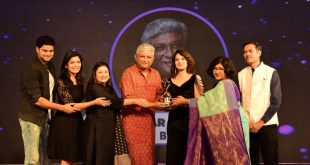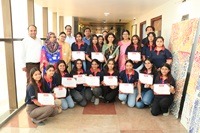The new Center for Generative AI and Society reinforces USC’s historic influence on computing and its reputation for nurturing generations of engineers, entrepreneurs, innovators and scientists
National, March 10, 2023 USC President Carol Folt announced on Thursday a new Center for Generative AI and Society to explore the transformative impact of artificial intelligence on culture, education, media, and society. The new $10 million center will seed research, convene experts, and expand the university’s national leadership, with a special focus on the ethical use and innovation of generative AI.
“USC is uniquely positioned to understand and influence how this emerging technology is changing the ways we live, work, and play,” USC President Carol Folt said. “Our 22 schools are long-standing leaders in fields like the creative arts, media, health, education, engineering, and business. Working across disciplines, USC will vigorously explore the intersection of ethics and the use and evolution of generative AI.”
The center reinforces USC’s historic influence on computing and its reputation for nurturing generations of engineers, entrepreneurs, scientists, and creative artists. The university is already a pioneer in these areas with interdisciplinary education, award-winning alumni and faculty, and students who are creators, disruptors, and innovators.
The timing of the center’s opening comes amid the buzz over generative AI technology such as OpenAI’s ChatGPT and DALL-E, the former of which was launched with the aid of USC alumni. AI-based tools are advancing so quickly that USC leaders say they are forming the center at a critical point in the technology’s development. The center aims to prepare students for the jobs of tomorrow by giving them access to the latest AI technology.
“The genie is out of the bottle, and we’re not going back,” said Ishwar K. Puri, Senior Vice President for Research and Innovation. Our students are going to use this technology, and we need to teach them how to use it responsibly. We want to harness the power of AI for the public good.”
A core group of leaders and faculty from the following USC schools will spring the university into an immersive exploration of generative AI, its benefits, and its challenges: the USC Annenberg School for Communication and Journalism, the USC Rossier School of Education, the USC School of Cinematic Arts, the USC Jimmy Iovine and Andre Young Academy, and the USC Viterbi School of Engineering.
The center will mobilize the expertise of USC’s schools to explore themes across multiple industry sectors and professions, as well as support further research and the development of educational programs. The center’s realm of influence will span the disciplines of arts, media, education, and beyond, with the potential to influence the economy, health care, law, medicine, policy, and science.
In fact, USC alumni already are influential, as they played a formative role in generative AI. Ashish Vaswani, a doctoral computer science graduate of USC Viterbi, co-authored a paper, “Attention Is All You Need,” with Niki Parmar and other researchers that proved a foundational text in ChatGPT’s creation and other generative AI. (Parmar earned a master’s degree in computer science from USC Viterbi.)
“USC is not just an intellectual environment. There was a certain culture at USC that focused on pragmatic, real results, and communication was so important,” said Vaswani. Everything I learned at USC shaped how I do my research and how I learn and absorb information. It was a vibrant, tremendous research group pursuing bold ideas, and that’s rare.”
The center will be co-directed by Holly Willis, a professor and chair of the media arts and practice divisions at the USC School of Cinematic Arts, and Bill Swartout, a computer science research professor at USC Viterbi and chief technology officer for USC Viterbi’s Institute for Creative Technologies.
Puri anticipates that USC researchers involved with the center may also tap AI technologies to solve problems in drug discovery and develop new diagnostic techniques.”We have a duty to develop solutions that are ethical and that benefit society as a whole,” Ishwar K. Puri said. “This is an exciting time for USC, and we’re looking forward to working with our faculty and students to explore the possibilities of generative AI.”
 Newspatrolling.com News cum Content Syndication Portal Online
Newspatrolling.com News cum Content Syndication Portal Online




